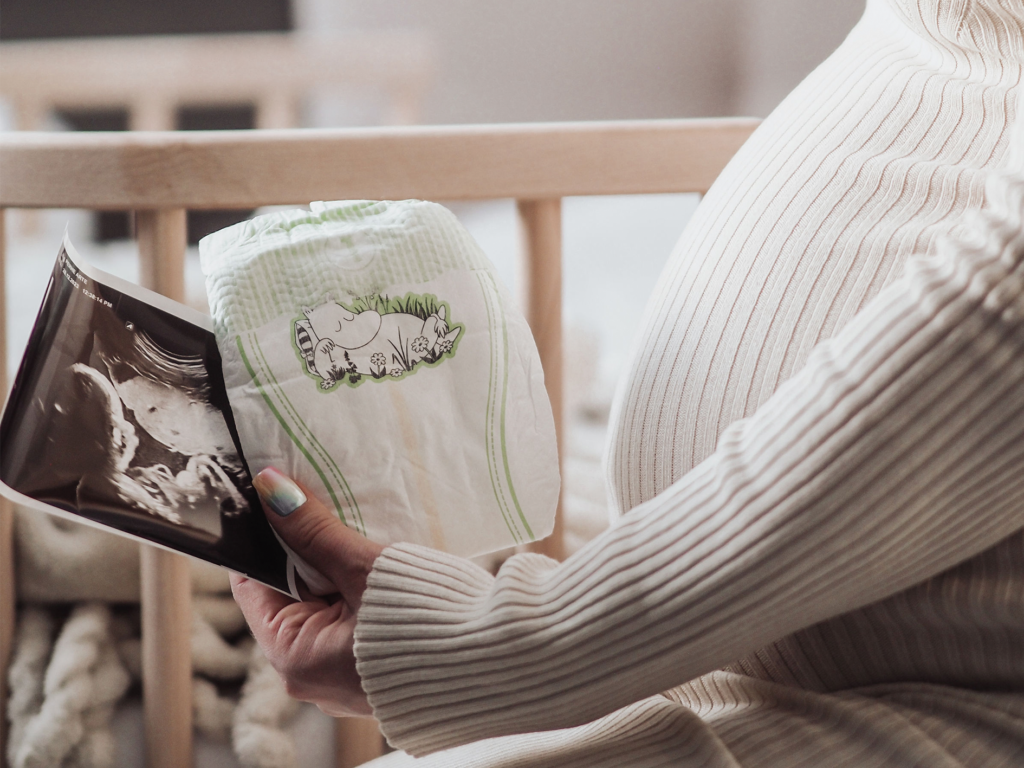During pregnancy, it is really important to pay special attention to your diet. Many Finns love salty liquorice, and they can be a favourite treat for many expectant parents. However, it is important to know that salty liquorice contains ammonium chloride and high levels of sugar, which can pose risks to both mother and fetus. In this article, we will discuss why eating salty liquorice during pregnancy may be a bad idea and what the health impacts are.
Ingredients in salty liquorice and their effect on pregnancy
Salty liquorice, a favourite treat of many Finns, contains ingredients that can affect pregnancy. The main ingredient in salty liquorice is ammonium chloride, but liquorice is often added. And it has been noted that liquorice may be linked to health problems during pregnancy. Liquorice and salty liquorice both contain an ingredient called glycyrrhizin, which appears to have effects during pregnancy. Studies have shown that ingesting more than 250 milligrams of glycyrrhizin daily during pregnancy can cause problems with fetal development. Glycyrrhizin affects cortisol metabolism, which in turn can affect fetal development. It is therefore important to understand the ingredients in salty liquorice and their possible effects on the course of pregnancy before consuming the treat.
Liquorice glycyrrhizin and its potential adverse effects on fetal development
Liquorice glycyrrhizin is an important ingredient in salty liquorice, but it can cause harm during pregnancy. Studies have shown that high daily doses of glycyrrhizin, especially above 500 milligrams, may be associated with fetal development problems and complications during pregnancy. Glycyrrhizin affects cortisol metabolism, which can increase cortisol levels in both mother and fetus. Cortisol is a stress hormone that can adversely affect neurological development. In addition, high doses of glycyrrhizin can negatively affect placental function by inhibiting the activity of an enzyme that normally protects the fetus from changes in maternal hormone levels. This can expose the fetus to stress hormones, which in turn can lead to premature delivery or low birth weight. Pregnant women should therefore avoid eating too much salty liquorice or liquorice.
Find out more about the risks of goat’s cheese for pregnant women here!
Therefore, pregnant women are advised to avoid salty liquorice and liquorice.
Risk of hypertension and the effect of salty liquorice on blood pressure
Ammonia is also known for its potential effect on blood pressure. An ingredient called glycyrrhizin, which is found in both liquorice and salty liquorice, can raise blood pressure. When blood pressure rises, the heart has to pump harder, which can lead to hypertension. This is particularly harmful for pregnant women, as their bodies are already stressed by the growth and development of the fetus. High blood pressure during pregnancy can lead to complications such as pre-eclampsia, which can be serious for both mother and baby. In addition, research has shown that high blood pressure during pregnancy can increase a child’s risk of developing high blood pressure and heart disease later in life. Therefore, pregnant women are advised to avoid salty liquorice and liquorice.
Salty liquorices link to swelling and fluid retention
Salty liquorice can also be associated with swelling and fluid retention in the body. This is again due to glycyrrhizin, which prevents the body from removing salt normally. Retention of salt in the body can lead to fluid retention and swelling, especially in the legs and ankles. Pregnant women are already more prone to swelling due to hormonal activity and pressure from the growing uterus. Therefore, ingestion of salty liquorice may aggravate this condition. In addition, swelling can be a sign of pre-eclampsia, a serious condition that causes high blood pressure and can damage several organs. Therefore, although bloating is a normal consequence of pregnancy, it is important to monitor its level and avoid foods such as salty liquorice that can make the condition worse.
Troubled by heartburn? Read tips for managing heartburn during pregnancy here!

Pregnancy-sensitive hormone imbalance as a result of salty liquorice
Pregnancy is a time when the hormonal balance in a woman’s body changes significantly. This balance is invaluable for the growth and development of the fetus. Glycyrrhizin, a substance found in salty liquorice and liquorice, can upset this balance. Glycyrrhizin prevents cortisol from becoming inactive, leading to an over-accumulation of the hormone in the body. This can cause high blood pressure and swelling, which are harmful to both mother and fetus. In particular, high cortisol levels during pregnancy have been linked to premature delivery and low birth weight. It is therefore important to avoid excessive intake of salty liquorice or liquorice during pregnancy to protect the body’s delicate hormonal balance.
You can also read our tips for pregnancy nausea here!
Fortunately, there are many alternative sweets that are healthy for mother and fetus.
Alternative sweets for pregnant women – Healthier treats
Although avoiding salty liquorice and liquorice during pregnancy can seem difficult, fortunately there are many alternative sweets that are healthy for mother and fetus. Fruit-based sweets, such as dried fruit or homemade fruit smoothies, can be a good choice. They contain vitamins and fibre without the potential health hazards of salty liquorice or liquorice. Nut and seed-based treats, such as nut chocolates, can also be a good choice. It provides healthy fats, protein and fibre. Another sweet and healthy option is dark chocolate, which is low in sugar but high in antioxidants and can even help lower blood pressure. However, it’s important to remember to eat all sweets in moderation, as too much sugar can lead to excess weight gain and other health problems.
Identify products containing salty liquorice and their labelling
One important way to reduce your intake of salty liquorice and liquorice during pregnancy is to learn to recognise products containing these ingredients. Although salty liquorice and liquorice are easily detectable in some products, such as salty liquorice candies or liquorice-flavoured sweets, they can be hidden in many other foods. The presence of glycyrrhizin is usually clearly indicated in the list of food ingredients. It may be found under the names “liquorice extract”, “liquorice root extract” or “liquorice root”, or under the names “glycyrrhizin” or “glycyrrhizinic acid”. Some products, such as teas and non-alcoholic drinks, may also contain salty liquorice or liquorice. It is therefore important to carefully study the ingredient lists of products and avoid those containing these ingredients, especially during pregnancy.
Pregnant women’s experiences: salty liquorice cravings and tips for managing cravings
While avoiding salty liquorice is recommended during pregnancy, the reality can be challenging for many expectant mothers, as cravings are common during pregnancy. Many pregnant women share their experiences of salty liquorice cravings: some say they have managed to avoid salty liquorice throughout their pregnancy, while others confess to succumbing to the treat from time to time. It is important to remember that occasional consumption of salty liquorice is allowed, but excessive consumption can be harmful. If you are struggling with a craving for salty liquorice, you can try alternative sweets or salt-flavoured treats such as pretzels or olives, which may satisfy a similar craving. Drinking plenty of water or brushing your teeth may also help with some cravings. Remember that you can always turn to your doctor or dietician for help and support.










